UConn Today (Eli Wolff responds to questions about how free are Olympic athletes to express their beliefs)
Neag School Names Recipients of 2022 Alumni Board Scholarship
Congratulations to the recipients of the Neag School of Education Alumni Board Scholarship for 2022:
-
-
Sandeep Dutta, a doctoral student in learning, leadership, and education policy (LLEP) with a concentration in sports management;
-
Yasmin Elgoharry, a doctoral student in LLEP with a concentration in higher education racial justice and decolonization; and
-
Joselyn Perez, a doctoral student studying research methods, measurement, and evaluation.
-
The Alumni Board Scholarship provides a $1,000 award annually to students enrolled in a Neag School master’s, doctorate, or sixth-year program who have proven academic excellence or demonstrated financial need.
Combining Passions for Soccer and Positive Change
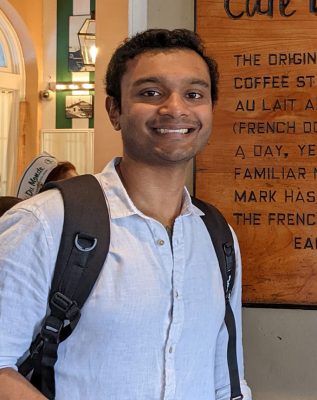
Throughout his time at Columbia University and now at UConn, Sandeep Dutta has been using his longtime love for soccer to give young individuals a chance to learn important skills outside of the classroom.
“In developing countries where the education system does not support holistic development, and success is measured by how well a student reproduces textbook material, the opportunities to learn essential life skills are minimal,” says Dutta, who grew up in a small village in India. “Over the years, research has shown the power of sports in developing long-term, transferable skills such as critical thinking, leadership, accountability, building self-confidence, and much more.”
During his time in the Neag School’s LLEP program, Dutta has engaged in Husky Sport, a program housed within the Neag School that works with Hartford schools to aid students’ growth and development through sports.
“This research-driven program, in conjunction with the rigorous Ph.D. course curriculum, provides the necessary exposure to experienced academics and researchers which will help me identify efficient solutions to solve issues around impact assessment in sport for development programs,” he says.
Growing up, Dutta says he felt societal pressure to become a doctor or engineer. However, he always found his happiness on the soccer field with his peers and, supported by his loved ones, Dutta was encouraged to follow his interests.
“I plan to use this degree to delve further into my research, specifically how regular physical activity can help in achieving several sustainable development goals.”
— Sandeep Dutta, 2022 Alumni Board Scholarship Recipient
“My parents understood … the proverbial ‘rat race’ involved in traditional fields and allowed me to explore and find my way,” he says. Being involved in sports, he adds, taught him “essential life skills,” such as respect for others, honesty, and hard work, from a very young age.
Dutta says he plans to use his scholarship and degree to delve further into his research, specifically how “regular physical activity can help in achieving several sustainable development goals.” He says he hopes to live in a society where the benefits of physical activity are available to everyone, not just those in prosperous, modern communities.
Inspired to Advocate for Change
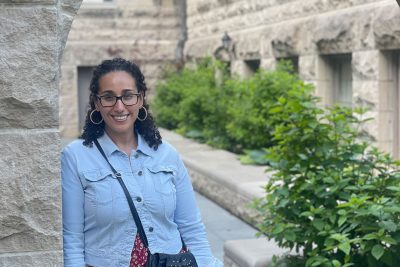
As a first-generation Muslim immigrant and woman of color, Yasmin Elgoharry says she quickly realized the American Dream is not always as attainable as it seems. To her, receiving an education was a symbol of gaining upward mobility.
“My education proved difficult, as there was a dearth of role models and mentors who looked like me or shared my story, or even had an understanding of the difficulties that I faced as a nontraditional student who worked multiple jobs while trying to balance her education and home responsibilities,” she says.
Elgoharry says she witnessed firsthand bigotry, xenophobia, and racism in seeing her mother, a housekeeper, and her father, a custodian, mistreated in the workplace. As they tried their best to provide for their children, Elgoharry found inspiration to advocate and fight for change.
“I believe that poverty, illiteracy, inequality, and even bigotry are policy choices, and education is the best prescription for curing all of the above,” says Elgoharry. “I want to understand better the intersection of education, inequality, race … that plague our communities and nation and hinder us from building a better society, so that I might one day have the tools to change it.”
“It truly takes a village, but I have been fortunate to have had a community of mentors to help me throughout my journey.”
— Yasmin Elgoharry,
2022 Alumni Board Scholarship Recipient
As Elgoharry strives toward her mission of working in higher education, she also plans to create a space for underrepresented individuals in America, including immigrants, women of color, and working-class students who may not be receiving the same opportunities as others.
For Egloharry, a strong support system is key. She credits part of her success to the ‘village’ that helped raise her.
“I have been fortunate to have had mentors of all stripes, from the Black and Brown women who spent their free time volunteering at the local Boys & Girls Club, who helped me with my homework while my parents were working, to the educators who encouraged me to reach higher, and to my parents’ indomitable will to give my sister and me a better life,” she says. “It truly takes a village, but I have been fortunate to have had a community of mentors and role models to help me throughout my journey.”
Recently, she was selected by peers to represent the Neag School’s Department of Educational Leadership on the Neag School Doctoral Studies Committee and also will serve on the Graduate Student Career Council.
From Knowledge to the Real World
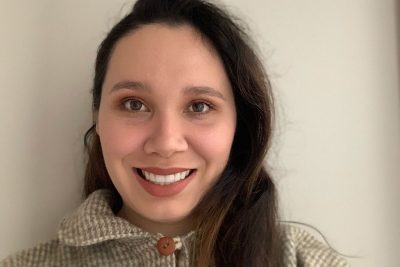
Joselyn Perez, also a first-generation American, was motivated from a young age by her parents’ happiness whenever she excelled in school.
“I decided to pursue my Ph.D. … because for once I felt convinced that what I was learning in the classroom, I could apply to the real world,” says Perez, who is pursuing her doctorate at the Neag School in research methods, measurement, and evaluation. “I grew passionate about statistics because I was able to explain life occurrences with numbers.”
“As a child, I observed the decisions that people around me would make, as well as the consequences that came with their actions,” says Perez. “I learned that these decisions and consequences did not just affect the individual, but [also their] family.”
“I decided to pursue my Ph.D. … because for once I felt convinced that what I was learning in the classroom, I could apply to the real world.”
— Joselyn Perez, 2022 Alumni Board Scholarship Recipient
Her parents continuously told her the one thing that would help her get ahead in life would be education.
“I took that to heart and made efforts to learn about opportunities, resources, and mentors that could help me achieve my educational goals,” she says. “It was intimidating to navigate and investigate how I was going to obtain a higher education, but I quickly learned that I had a lot more to lose if I did not try.”
With this scholarship support, Perez says she knows that she is on the right path, and that it serves as a reminder that she is succeeding and that others see the true potential in her and her capabilities.
Alumni Board Scholarship recipients Sandeep Dutta, Yasmin Elgoharry, and Joselyn Perez will be formally recognized at the 2022 Neag School Alumni Awards Celebration, taking place in March. For more information on supporting students like these, visit s.uconn.edu/neaggiving.
Call for Public Comments
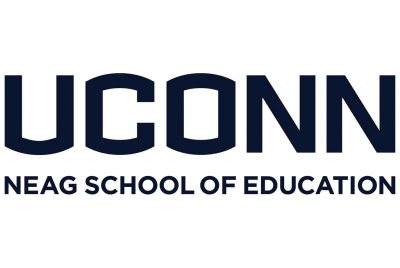
The Neag School of Education at The University of Connecticut is hosting an accreditation visit by the Council for the Accreditation of Educator Preparation (CAEP) on May 1, 2022. Interested parties are invited to submit third-party comments to the evaluation team. Comments must be received no later than 6 weeks prior (March 20, 2022) to the CAEP site visit date.
Please note that comments must address substantive matters related to the quality of professional education programs offered, and should specify the party’s relationship to the provider (e.g., graduate, present or former faculty member, employer of graduates, etc.).
We invite you to submit written testimony to:
CAEP
1140 19th Street NW, Suite 400
Washington, DC 20036
Or by email to: callforcomments@caepnet.org
Such comments must be within the specified period and based on the core tenets of CAEP accreditation standards of excellence, which recognize that:
- In CAEP’s performance-based system, accreditation is based on evidence that demonstrates that teacher candidates know the subject matter and can teach it effectively so that students learn. In the CAEP system, EPPs must prove that candidates can connect theory to practice and be effective in an actual P-12 classroom.
- A professional education provider that is accredited by CAEP is expected to be involved in ongoing planning and evaluation; engaged in continuous assessment and development; ensure that faculty and programs reflect new knowledge, practice, and technologies; and be involved in continuous development in response to the evolving world of education and educational reform.
- Comments must address substantive matters related to the quality of professional education programs offered, and should specify the respondent’s relationship, if any, to the institution (i.e., graduate, present or former faculty member, employer of graduates). Copies of all correspondence received will be sent to the university for comment prior to the review.
Neag School Accolades: January 2022
Throughout the academic year, the Neag School is proud to share the latest achievements of its faculty, staff, students, and alumni.
Explore their most recent promotions, research grant announcements, publications, and more:
- Dean’s Office
- Department of Curriculum and Instruction and Teacher Education
- Department of Educational Leadership
- Department of Educational Psychology
- Faculty/Staff
- Students
- Alumni
- In Memoriam
Dean’s Office
The Neag School and its Alumni Board are pleased to announce the winners of the 2022 Alumni Awards:
- Outstanding School Educator — Jeffrey Danielian ’06 MA
- Outstanding Professional — Cindy Ouillette ’97 (ED), ’98 MA
- Outstanding Early Career Professional — Wura Olusekun ’16 MA
- Outstanding School Administrator — Siobhan O’Connor ’12 6th Year, ’16 ELP
- Outstanding School Superintendent — Jody Ian Goeler ’07 ELP
- Outstanding Higher Education Professional — Bidya Ranjeet ’94 MA, ’90 Ph.D.
- Outstanding Diversity, Equity & Inclusion Professional — Michael Corral ’19 Ph.D.
- Distinguished Alumna — Donna Bandelloni ’77 (ED), ’80 MA
In addition, Sandeep Dutta, a doctoral student in learning, leadership, and education policy (LLEP) with a concentration in sports management; Yasmin Elgoharry, a doctoral student in LLEP with a concentration in higher education racial justice and decolonization; and Joselyn Perez, a doctoral student studying research methods, measurement, and evaluation, have been named the recipients of the 2022 Alumni Board Scholarship; and Tamika LaSalle has been named the 2022 Perry A. Zirkel Distinguished Teaching Award honoree. Read more about the scholarship recipients.
All awardees will be recognized at a celebration in March. Read more about the 2022 honorees.
During its December faculty/staff meeting, the Neag School recognized the following individuals for their milestone years of service to UConn:
- 10 Years of Service: Shawn Kornegay (Dean’s Office)
- 15 Years of Service: Michele Femc-Bagwell (Dean’s Office); Robin Grenier (EDLR); Thomas Levine (EDCI); Brandi Simonsen (EPSY); Megan Staples (EDCI); John Zack (EDCI)
- 20 Years of Service: Sandra Chafouleas (EPSY)
- 25 Years of Service: Judith Mathews (EPSY)
- 30 Years of Service: Michael Young (EPSY)
- 35 Years of Service: E. Jean Gubbins (EPSY)
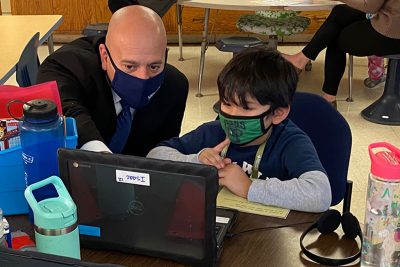
In December, Dean Jason Irizarry visited Mansfield (Conn.) Public Schools as a guest of Neag School alumna and Superintendent Kelly Lyman ’92 MA, ’93 6th Year, ’10 ELP. Dean Irizarry toured classrooms at Mansfield Middle and Goodwin Elementary and visited with educators, alums, and students. View photos from the visit.
The Neag School of Education and Dodd Human Rights Impact recognized International Human Rights Day with a virtual event in December. Alum and U.S. Secretary of Education Miguel Cardona provided opening remarks, and Dean Jason G. Irizarry provided welcoming remarks. The roundtable included former U.S. Sen. Christopher Dodd, Dodd Human Rights Impact director Glenn Mitoma, Conard High School teacher and alumna Abigail Esposito ’14 (ED), ’15 MA, and Neag School graduate student Tyler Gleen.
Niralee Patel-Lye and Tracy Sinclair appeared (1:44) in UConn’s holiday video, “Decking the Husky Halls.”
Department of Curriculum and Instruction (EDCI)
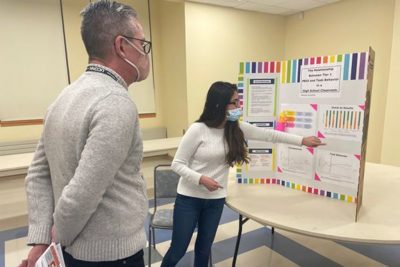
Current Neag School students in the Teacher Certification Program for College Graduates (TCPCG) recently presented their action research projects. These projects provide TCPCG students with an opportunity to discover ways in which teachers can continue to learn, grow, and construct knowledge for themselves, while also allowing these students to study localized problems and examine how practitioners can improve teaching and learning in their classrooms. Check out photos.
Neag School music education majors shared entertainment and education with fellow students, family, and friends at the UConn Music Building in December. The students had a full program of a variety of music presented by their choral and instrumental methods students for an evening of music making–their first in two years. View photos from the event.
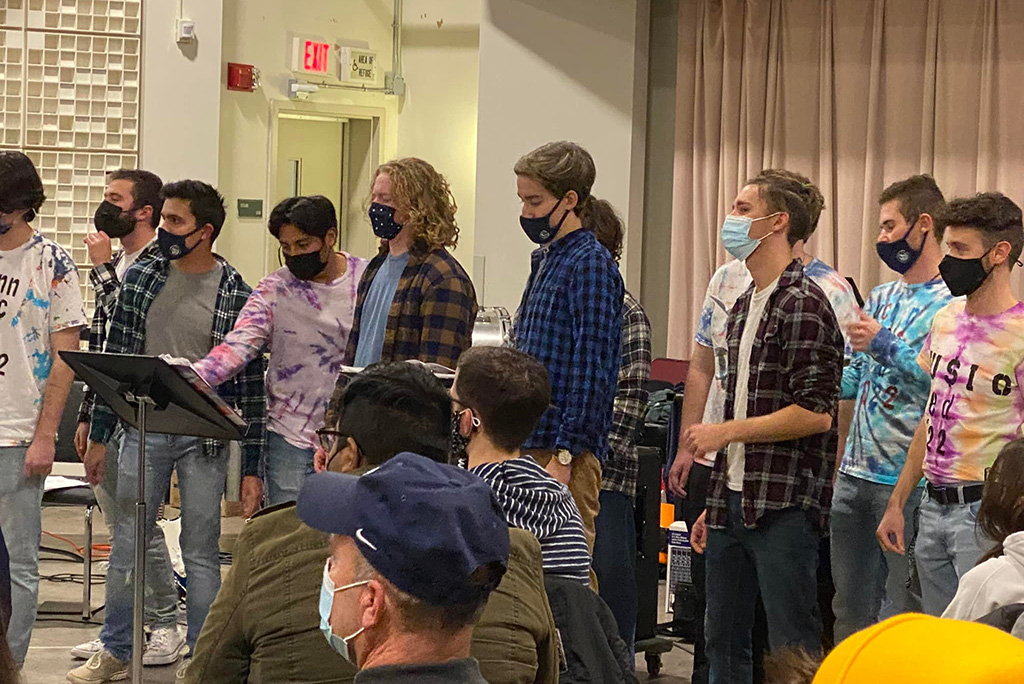
Department of Educational Leadership (EDLR)
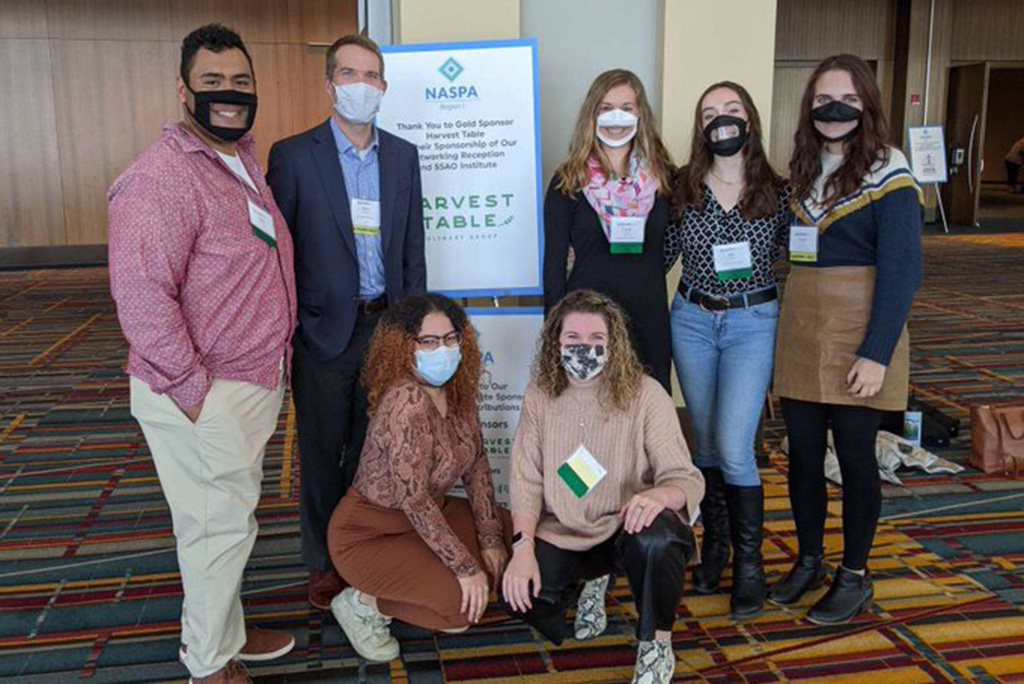
Department of Educational Psychology (EPSY)

 UConn’s Renzulli Center for Creativity, Gifted Education, and Talent Development is offering a new series of one-hour interactive webinars on topics of interest to educators as well as half-hour interactive webinars for parents of gifted students. The sessions will provide participants an opportunity to stay up to date on the latest issues in gifted education, talent development, and creativity. Register online.
UConn’s Renzulli Center for Creativity, Gifted Education, and Talent Development is offering a new series of one-hour interactive webinars on topics of interest to educators as well as half-hour interactive webinars for parents of gifted students. The sessions will provide participants an opportunity to stay up to date on the latest issues in gifted education, talent development, and creativity. Register online.
Faculty/Staff
Michele Back co-published “Siempre Adistanciados”: Ideology, Equity, and Access in Peruvian Emergency Distance Education for Spanish as a Second Language” for the December issue of Calico Journal.
Cara Bernard co-published an article titled “School Culture Change Through the Arts: A Case Study of the Turnaround Arts Program” for the January issue of Arts Education Policy Review.
Todd Campbell was interviewed in a Lab Out Loud podcast, “Using Phenomena to Help Students Explain the World.” The National Science Teaching Association supports Lab Out Loud. Campbell also co-published “What Causes the Disproportionate Impact of COVID-19 on Racial and Ethnic Minority Groups” and for the National Science Teaching Association’s (NSTA) Lesson Plan and “Student Agency Through Engineering” for NSTA’s January/February issue of Science and Children.
Rebecca Campbell-Montalvo and Gladis Kersaint co-published with others “How Stereotypes and Relationships Influence Women and Underrepresented Minority Students’ Fit in Engineering” for the November issue of Journal of Research in Science Education. In addition, Campbell-Montalvo was an editor of Interrogating the Relations Between Migration and Education in the South (Routledge, 2022).
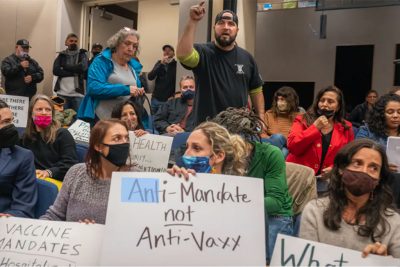
Casey Cobb penned an essay for The Conversation about how to prepare to run for a school board election. Read his essay.
Sandra Chafouleas was a panelist at the Children’s Mental Health Webinar with State Representative Jaime Foster in December, hosted by the Connecticut House Democrats. She also co-published with alumna Emily Iovino ’15 (CLAS), ’16 MA, ’20 6th Year, ’20 Ph.D. “Engaging a Whole Child, School, and Community Lens in Positive Education to Advance Equity in Schools” for Frontiers in Psychology and published “How to Use Homework to Support Student Success” for the January issue of Psychology Today.

Ido Davidesco was awarded a $1.3 million early-career grant from the National Science Foundation (NSF). Read more from UConn Today. As the principal investigator, he will research how internal attention thinking impacts learning in undergraduate biology classes. Read more. Davidesco was also profiled by UConn’s Collaboratory on School and Child Health (CSCH). Read more on CSCH’s website.
Nicholas Gelbar, doctoral student Alexandra Cascio ’81 MA, Joseph Madaus, and Sally Reis co-published “A Systematic Review of the Research on Gifted Individuals With Autism Spectrum Disorder” for the December issue of Gifted Child Quarterly.
Doug Glanville was recognized in December by the National Association of Black Journalists (NABJ)’ 2021 Professional Television Salute to Excellence Award in the Television – Network – Feature: Short Form category for the video “Enough,” which he wrote, and at the 63rd Annual Regional Chicago/Midwest Emmy Awards for Outstanding Achievement for Sports – Interview/Discussion category for “Class Is In Session Special: MLB’s Decision on All-Star Games,” for which he served as the host. In addition, Glanville will be calling ESPN Sunday Night Baseball games on the radio this season.
Preston Green was interviewed for the Brainwaves Anthology Collection on three topics: (1) school funding, (2) charter schools, and (3) teachers make a difference. Green also co-filed a brief to the U.S. Supreme Court on state funding for religious schools, published by the National Education Policy Center.
James Kaufman co-published “COVID-19 Lockdown and Creativity: Exploring the Role and Emotions and Motivation on Creative Activities From the Chinese and German Perspectives” for the October issue of Frontiers in Psychology.
Devin Kearns co-published, with Cheryl Lyon, a doctoral student in educational psychology, “Improving Literacy Instruction in Co-Taught Middle School Classrooms to Support Reading Comprehension” for the December issue of Contemporary Educational Psychology.
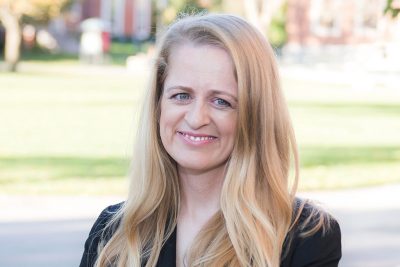
Kathleen Lynch was selected as an Emerging Education Policy Scholar by the Thomas B. Fordham Institute and the American Enterprise Institute (AEI). Lynch also co-published “The Impact of Summer Programs on Student Mathematics Achievement: A Meta-Analysis” for the January issue of Ed Working Papers.
Allison Lombardi is a new co-editor of the journal Career Development and Transition for Exceptional Individuals.
Alan Marcus and Thomas Levine co-published a paper, “Mapping the Pandemic: Teaching Critical Map Literacy with Interactive COVID-19 Maps,” featured in UConn Today. Marcus also co-published with alumnus Ian McGregor ’21 Ph.D. and others “Holocaust Education in Transition From Live to Virtual Survivor Testimony: Pedagogical and Ethical Dilemmas” for the December issue of A Journal of Culture and History.
Adam McCready co-presented “W(h)ither Graduate Preparation Programs Current and Post-Pandemic?” at the Student Affairs Administrators in Higher Education (NASPA) Region 1 Conference in Hartford, Connecticut, in November. In addition, he presented “Precarious Manhood in the Echo Chamber: Alcohol, Hazing, and Sexual Violence” at the Association of Fraternity/Sorority Advisors Annual Meeting virtually in December. McCready was also named to the editorial team of The Research Journal of the Association of Fraternity/Sorority Advisors and co-published “Fraternities as Settings for Sexual Assault: The Relationships of Traditional Masculine Norms Climates and Sexual Assault Attitudes” for the December issue of Psychology of Men and Masculinity.
Diandra Prescod co-published “Conceptualizing COVID-19-Related Career Concerns Using Bioecological Systems: Implications for Career Practice” for the December issue of The Career Development Quarterly.

Sally Reis, Nicholas Gelbar, and Joseph Madaus co-published “Understanding the Academic Success of Academically Talented College Students with Autism Spectrum Disorders” for the September issue of Journal of Autism and Developmental Disorders. The article was featured in UConn Today. Reis and Joe Renzulli co-published The Schoolwide Enrichment Model: A Talent Development Approach Resulting in Opportunities, Resources, and Encouragement for All Students (IGI Global, 2022).
Joe Renzulli co-published a chapter with Nicole Waicunas, “An Infusion-Based Approach to Enriching the Standards-Driven Curriculum,” for Reflections on Gifted Education (Taylor Francis Group 2022). In addition, the book The Scholastic Enrichment Model, co-authored by Reis and Joe Renzulli, was translated into Italian. Reis and Renzulli also co-published a chapter, “The Schoolwide Enrichment Model: A Talent Development Approach Resulting in Opportunities, Resources, and Encouragement for all Students,” for Creating Equitable Services for the Gifted (IGI Global 2022).
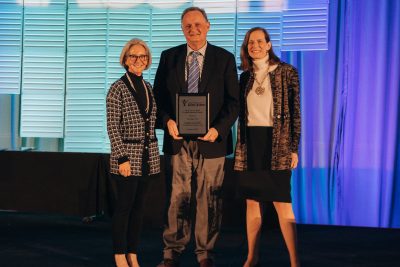
Del Siegle received the 2021 National Association for Gifted Children (NAGC)’s Ann F. Isaacs Founder’s Memorial Award for distinguished service to NAGC and gifted education. He was formally recognized at the NAGC Annual Convention in Denver, Colorado, in November.
Tracy Sinclair co-published “Building a Transition Assessment for Students with Significant Cognitive Disabilities: Transition Assessment and Goal Generator-Alternative” for the December issue of DADD Online Journal.
Saran Stewart was an invited speaker for several recent virtual events: School of Environment, Resources and Sustainability, University of Waterloo, Canada; the 2021 International Professional Development Association, UK; 2021 Association of Graduate Researchers in Education Conference, Kingston, Jamaica; the Jamaica Tertiary Education Commission Research Forum; 2021 Hong Kong Education Research Association; and the Asian Pacific Education Research Association International Conference in Hong Kong.
Jennie Weiner has been awarded a $360,000, three-year grant from the U.S. Department of Education’s Teacher Incentive Fund program to evaluate elements of NEtworkED: Creating Communities of Equity and Opportunity in Northeast Ohio. Alexandra Freidus is a co-investigator on the grant. Weiner also co-published with doctoral student Daron Cyr and Laura Burton an article titled “A Study of Black Female Principals Leading Through Twin Pandemics” for the December issue of Journal of Education Human Resources. In addition, Weiner was a panelist for the UConn Leadership and Organizational Development’s session on “The Double Bind Facing Women in Leadership,” held in December.
Students
Jannatul Anika, a junior in science education, has been selected for the University Scholar Program. This is the highest academic honor that UConn bestows upon an undergraduate student at graduation upon completing the program.
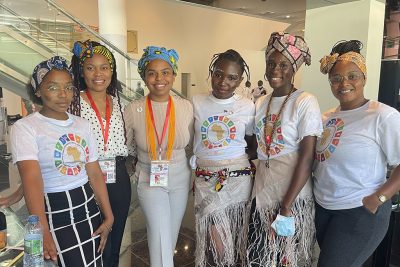
Pauline Batista, a doctoral student in educational leadership, participated in UNESCO’s Intergenerational Dialogue as part of the #BiennaleLuanda 2021 in October. Only two people are chosen per country.
Brianna Chance was featured (:07) in UConn’s current promotional commercial, aired every time the UConn Huskies play in a televised sports game.
Tamashi Hettiarachchi ’21 (ED), who is pursuing a master’s degree in curriculum and instruction, was recognized as an Alma Exley Scholar.
Heather Kwolek, Adeline Bray ’19 (CLAS), Alyssa Bunyea ’21 MA, and Erin DeMaio, doctoral students in educational psychology, along with Melissa Bray and alumna Karen Ottone-Cross ’15 MA, ’18 6th Year, ’18 Ph.D., co-authored an article titled “Assessment of Students With Autism Spectrum Disorder for Emergency Response Planning” for the November issue of Psychology in the Schools.
Saraya Lewis, a junior majoring in English education, was named an Alma Exley Scholar.
Katerine Santiago Montalvo ’21 (ED), a master’s student in Spanish education, wrote a newsletter article for the Connecticut Council of Language Teacher’s Fall/Winter newsletter edition about her personal experiences in an ELL program.
Kaitlynn Styles, a fifth-semester history major with minors in political science and American studies, was elected to Wolcott’s Town Council in Wolcott, Connecticut.
Alumni
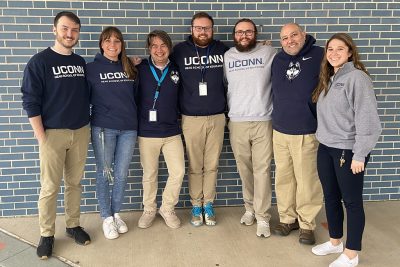
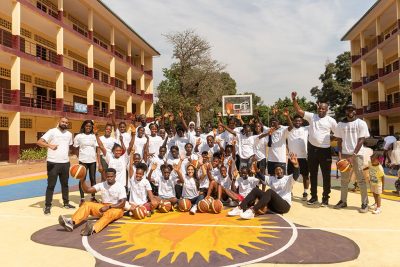
Batouly Camara ’19 (ED), ’20 MA, a former UConn women’s basketball player and CEO of Women and Kids Empowerment (WAKE), was feature by In the Know, by Yahoo! Sports. Over the past year alone in Guinea, WAKE has built two basketball courts, launched six full scholarships, held three basketball camps, and built a water pump in a village that did not have access to clean drinking water.
Susan (Rovezzi) Carroll ’81 Ph.D. co-published a book Statistics Made Simple for School Leaders (Rowman & Littlefield, 2022). Carroll, who is president of Words & Numbers Research, is a past recipient of the Neag School Alumni Board’s Outstanding Professional award.
Patricia Charles ’90 6th Year, ’02 ELP, a retired superintendent, was recognized by the Middlesex United Way with its Community Service Award.
Johanna deLeyer-Tiarks ’17 MA, ’20 6th Year, ’20 Ph.D., Melissa Bray, Sandra Chafouleas, James Kaufman, and Michael Li, a doctoral student in educational psychology, co-published Investigating Virtual Reality for the Delivery of Self-Modeling Interventions: Virtual Reality Self-Modeling as an Intervention for Stuttering for the December issue of Translational Issues in Psychological Science.
Elizabeth M. DeVitto ’14 (ED), ’15 MA published a children’s book, Safe Spot, on helping children with emotions.
Jamahl Hines ’93 (CLAS), ’14 6th Year, assistant principal at Conard High School in West Hartford, Connecticut, was named 2022 Assistant Principal of the Year 2022 Assistant Principal of the Year by the Connecticut Association of Schools (CAS). Hines was also named interim principal for Conard High School.
Michael Mallery ’15 MA, ’20 Ph.D. is the district coordinator of social, emotional learning for Windsor (Conn.) Public Schools.
Chloe Pavlech ’18 MS, an assistant women’s basketball coach for Baylor University, was featured by Baylor University.
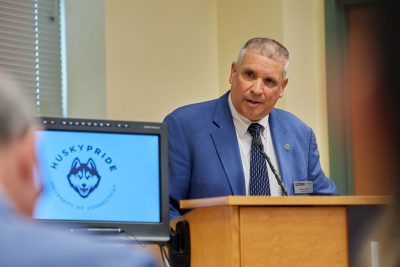
William “Bill” Pizzuto ’99 Ph.D., director of UConn Waterbury, is retiring in February. He served as the director since 2006, and previously served as associate vice provost for the UConn tri-campus program of Waterbury, Torrington, and West Hartford. Pizzuto also served as director of both the Waterbury and Torrington campuses before the closure of the Torrington campus.
Laura Rodriguez ’20 Ph.D. co-published with Todd Campbell, David Moss, UConn faculty member Laura Cisneros, and others “Assessing STEM Identities in Intergenerational Informal STEM Programming” for the December issue of Contemporary Issues in Technology and Teacher Education.
Jocelyn Tamborello-Noble ’03 (ED), ’04 MA, ’09 6th Year was named assistant principal for Conard High School in West Harford, Connecticut. She most recently served as the school’s world language department supervisor.
In Memoriam
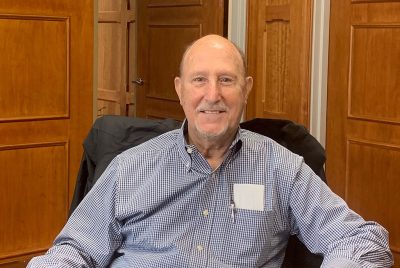
Robert S. Avery ’74
Paul D. Baillargeon ’64
Raymond J. Beauregard ’63
Richard T. Coburn ’58
Eleanor D. Controvillas ’61
Chelsea Cunha – student
Kathleen “Kathy” (Crownhart) Gleason ’72
Maureen Becks Macera ’89
Ann Nicolle Rome ’54
Vincent C. Russell ’72
William “Bill” Servedio – professor emeritus
Frances Roxine Stepchew ’54
Errol J. Terrell ’65
Caroline (Kennedy) Voorhees ’63
Kenneth C. White ’55
Announcing the 2022 Neag School Alumni Awards Honorees
The Neag School of Education and its Alumni Board are delighted to announce the 2022 Neag School Alumni Awards honorees. Eight outstanding graduates will be formally recognized at the School’s 24th annual Alumni Awards Celebration on Saturday, March 12, 2022. Register by March 7 to join the virtual event.
Outstanding School Educator
Jeffrey S. Danielian ’06 MA
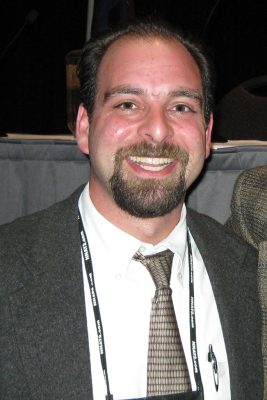
In addition to directing the LaSalle Scholars Program and teaching freshman biology at LaSalle Academy in Providence, Rhode Island, Jeffrey Danielian serves as the editor-in-chief for the National Association for Gifted Children’s (NAGC) magazine, Teaching for High Potential. In his role at LaSalle Academy, Danielian provides ongoing opportunities for student enrichment inside and outside the classroom, including facilitating independent research studies and coordinating mentorships. At NAGC — where he is known as a leader in the field — he also coordinates the Javits-Frasier Teacher Scholarship Program and oversees the submission and review process for the association’s annual convention. He serves as co-director of Edufest, a gifted and talented conference held in Boise, Idaho. In addition, Danielian provides consultation to educators and parents and has authored various white papers, research summaries, and blog posts, as well as four volumes of poetry and four nonfiction books, including books about science teaching.
Outstanding Professional
Cindy Ouillette ’97 (ED), ’98 MA
A graduate of the Neag School’s Integrated Bachelor’s/Master’s Program, Cindy Ouillette serves as a library media specialist for Tourtellotte Memorial High School in North Grosvenordale, Connecticut. In that role, she impacts the school’s educational community by building collegial collaborations, including integrating literacy skills into the curriculum, and delivering and facilitating special events to support student and staff literacy. Ouillette co-chaired the steering committee for the school’s accreditation process and also collaborated with colleagues in writing technology grants that have awarded the district more than $200,000 to date. In addition, she develops rigorous academic opportunities and assists students with finding specific resources for individualized needs. Recognized as a forward thinker, Ouillette initiated and continues to advise a student writing center, and also collaborated with the school’s alumni association to plan and facilitate a yearly “Alumni Career Day.”
Outstanding Early Career Professional
Wura Olusekun ’16 MA
Wura Olusekun has served as a program assistant with the National Hockey League (NHL) since 2017, where she oversees social impact, growth initiatives, and legislative affairs. In that role, Olusekun collaborates with stakeholders across the NHL to plan internal and external talent-related projects and events, and produce content for social impact campaigns. Through her work at the NHL, she has highlighted the importance of diversity and inclusion in hockey and beyond, evidenced, for instance, in her collaborations with NHL Studios and Marketing to develop the Off-Ice with Wyclek Jean four-part series, and to pitch and manage the process for Black Bolden’s Be Bold Players’ Tribune Story. Most recently, she accepted a new role with Major League Soccer (MLS), where she is oversees social responsibility. As a master’s student in the Neag School’s Sport Management program, she initiated the “Beyond the Field” speaker series, which continues today, enhancing students’ experience in the sport management program while also informing the greater Neag School community.
Outstanding School Administrator
Siobhan O’Connor ’12 6th Year, ’16 ELP
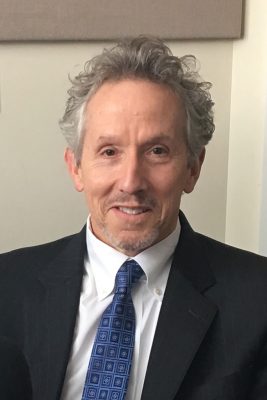
Siobhan O’Connor has served since 2017 as principal of Highcrest Elementary School in Wethersfield, Connecticut. A tireless advocate for student resources, she is a visible presence who is deeply connected to the school community and focuses on her students, including leading the school during a pivot to remote learning during the COVID-19 crisis. During the pandemic shutdown, O’Connor ensured her students were receiving meals, with her efforts helping to create a satellite meal distribution site in town. As the 2020-21 school year began, O’Connor proactively planned for school safety. As a result, 100% of her staff returned to school during the pandemic. She has shared her extensive knowledge of educational strategies, including being integral in helping to create student learning plans as well as strategies during individualized education program meetings. Recognizing the need to increase collaboration between general and special education teachers, O’Connor worked with her leadership team to adjust the daily schedule to increase collaborative time; this model proved so effective that other schools within the district have also looked to implement it.
Outstanding School Superintendent
Jody Ian Goeler ’07 ELP
A graduate of the Neag School’s Executive Leadership Program, Jody Ian Goeler has served as superintendent of Hamden (Connecticut) Public Schools since 2014. He leads a dynamic and diverse urban/suburban district with a student enrollment of approximately 5,700 students, 880 full-time staff, and a budget of $92 million. A dedicated and passionate leader, Goeler is implementing a multiyear plan that provides bold, innovative, and transformative leadership to address equity for Hamden Public Schools. He is leading Hamden Reimagine, Restructure, Results (R3), a forward-thinking approach to change the fabric of Hamden Schools to provide educational equity for all schools. Known throughout the state as a literacy expert, Goeler began his academic career in Connecticut teaching, supervising student activities, and developing individualized education programs. Additionally, he is an innovator with technology and brought technology in Hamden classrooms to a new level.
Outstanding Higher Education Professional
Bidya Ranjeet ’84 MA, ’90 Ph.D.
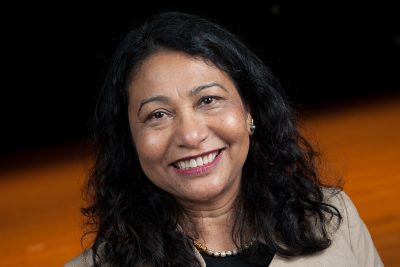
Bidya Ranjeet has served as a director of the UConn Center for Academic Programs (CAP) since 2013, where she manages the daily operations of the University’s TRIO Programs (Student Support Services, UConn College Access and Success, and UConn Rising Scholars Program and McNair Scholars Program). While recruiting, enrolling, supporting, retaining, and graduating low-income and first-generation students through the CAP’s umbrella programs, she has successfully secured local, state, and federal funding — including, most recently, $1.4 million in grant support from the U.S. Department of Education. Her advocacy for students and collaboration with campus support services at UConn began almost 30 years ago, when she started as a counselor at UConn Student Support Services, advising students on personal, academic, career, and financial aid issues. Ranjeet, who began her professional career in education as a teacher, then principal, in Kathmandu, Nepal, earned her master’s in educational administration and her doctorate in adult education from the Neag School.
Outstanding Diversity, Equity and Inclusion Professional
Michael D. Corral ’19 Ph.D.
A lead researcher for Promise54, a national nonprofit designed to support and build up education systems to improve diversity, equity, and inclusion (DEI) experiences, Michael Corral is a graduate of the Neag School’s doctoral program in learning, leadership, and education policy. At Promise54, he collects data to inform the organization’s research and reporting and recently was lead author of a published report summarizing 50,000 staff experience surveys and 700 organizational profiles sharing the current DEI work and antiracism in the education sector. As a doctoral student, Corral taught courses throughout the Neag School, focusing on multicultural education, equity, and social justice, and providing professional development sessions and leadership for UConn’s Husky Sport program. Driven by his own experiences navigating the educational system as a student of color, Corral began his professional career in education teaching in a rural, lower-income, and predominantly Latinx community.
Distinguished Alumna
Donna Bandelloni ’77 (ED), ’80 MA
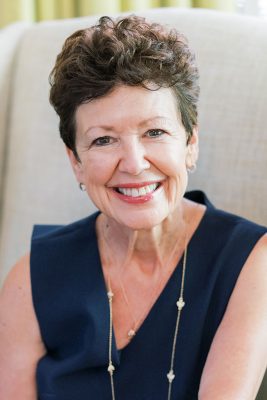
Donna Bandelloni has served as a director of gift planning for leading healthcare organizations and as senior director and director of charitable gifts for world-leading financial institutions for more than 25 years. Her capacity to lead and execute produced significant growth in gift planning programs for large healthcare foundations in Northern California. In addition, Bandelloni has held director positions at large financial institutions such as Merrill Lynch Trust, Wells Fargo Charitable Management, and Mellon Financial, successfully expanding their charitable services to the nonprofit sector. She is actively involved with the National Association of Charitable Gift Planners, Association for Healthcare Philanthropy, American Council on Gift Annuities, and Marin Estate Planning Council. At UConn, she is a member of the Neag School of Education Dean’s Board of Advocates and the UConn Foundation’s Women’s Philanthropy Forum.
The 24th Annual Neag School Alumni Awards Celebration will be held on March 12, 2022. Register by March 7 to join the virtual event. Questions? Contact neag-communications@uconn.edu.
3 Tasks You Should Be Prepared to Do Before You Run for School Board

Editor’s Note: Written by Professor Casey Cobb, this article about school board elections originally appeared in The Conversation.
More than masks and critical race theory: When people run for school board these days, they often are motivated to campaign on a controverisial topic.
When people run for school board these days, they often are motivated to campaign on a controverisial topic. That’s according to Ballotpedia, a nonprofit that tracks political elections in the U.S.
In an analysis of school board elections in 463 school districts in 2021, the organization found elections that were once uncontested had drawn candidates who were “galvanized by one issue or another.”
Three issues came up the most. The most oft-cited issue was race in education, more specifically, the teaching of critical race theory. The second most frequently cited issue was school policies on the pandemic – that is, requirements to wear masks or get vaccinations, or school reopening. The third most-cited was sex and gender in schools, such as gender-specific facilities.
As of January 2022, Ballotpedia discovered 287 school districts in 25 states where candidates took a position on race in education; 199 school districts in 23 states where candidates took a position on responses to the coronavirus pandemic; and 144 school districts in 18 states where candidates took a position on sex and gender in schools.
A Worrisome Trend
As a former school board member – and as a researcher who studies educational leadership and policy – I find it worrisome when polarizing issues generate so much attention from candidates. The reason I worry is that I know from firsthand experience that being an effective school board member is never just about taking a stance on a few hot-button topics. Rather, it’s about much broader issues, such as meeting the educational needs of all students in the school district.
“As a former school board member – and as a researcher who studies educational leadership and policy – I find it worrisome when polarizing issues generate so much attention from candidates.”
Too often, support for candidates hinges on the positions they take on the most controversial issues. For instance, in Florida, Gov. Ron DeSantis, speaking on behalf of his state’s Republican Party, pledged to withhold support from “any Republican candidate for school board who supports critical race theory in all 67 counties or supports mandatory masking of schoolchildren.”
As impassioned as people may be about issues like mask requirements, keeping schools open or confronting issues of race in the curriculum, running a school district is about much more than any one of those single issues. With that in mind, here are three actions that future school board candidates should be prepared to take.
1. Set district policy
A primary function of the school board is to develop, review and approve district policy. These policies can include implementing state mandates – such as establishing high school graduation requirements – or formulating a plan to evaluate teachers.
Some policies take on broad issues that affect all students. For instance, a policy might express a goal to make sure all students have access to the internet at home. Other policies might deal with smaller matters, such as whether home-schooled students can participate in extracurricular activities at the local public school.
2. Make tough budget decisions
One of the most difficult tasks that school board members must do is decide how to spend the school district’s limited revenue.
The vast majority of a district’s budget – about 80% to 85% – goes to personnel costs, such as salaries and benefits for school staff. Paying for these employee expenditures is becoming more challenging because of the rising cost of health insurance.
To stay within budget, school board members may have to cut positions or programs. It’s usually a matter of assessing tradeoffs: Do we cut our gifted and talented program to keep our school safety officer? Do we cut teaching positions to make the budget, and if so, which ones?
Each decision comes with consequences. For instance, cutting a gifted and talented program would make some families upset. Continued funding of a night school program might require a series of budget reductions in other areas, such as field trips or late buses.
A tough budget choice I remember facing as a school board member was deciding whether to renovate an outdated and undersized school theater. The board members all agreed the theater was in desperate need of an upgrade but decided to put off the theater upgrade to deal with other needs. The high school would soon need a new roof and boiler that ultimately took priority.
3. Select a superintendent
Selecting a district leader is critically important. So is deciding whether to keep or get rid of one. A good superintendent can make or break a district. The superintendent is the face of the school community and the district’s instructional leader.
Superintendents work with the school board to set the vision and goals for the district and then make sure they are achieved. They also hire and manage principals and other district leaders. Superintendents are expected to provide for the safety of children and staff and be good stewards of district finances.
Finding a good superintendent involves looking for leaders who have a proven track record in the areas of importance. Do they have a history of improving student achievement? Have they created a positive school climate and culture? Are they effective communicators?
If a school board chooses an ineffective superintendent, it usually sets a district back and the board ends up having to spend time and money to replace them.
A key distinction of American democracy is that candidates can develop platforms as they see fit, and it’s up to voters to decide if a particular candidate will represent their concerns. But when it comes to running a school system, it’s important to keep in mind that it involves much more than taking a stance on a few controversial issues. It’s also about making sound financial decisions and implementing policies that ensure all students get the education they deserve.
Exploring Fluctuations of Attention During Science Learning
Editor’s Note: This article about a new NSF grant, led by Ido Davidesco, originally appeared in UConn Today.

The science of distraction: Addressing the need to understand how students pay attention in virtual, as well as face-to-face, classrooms.
Picture a student as they watch a pre-recorded lecture in a college course. Their mind starts to wander to different thoughts – weekend plans, background noise, a social media feed. Before they realize it, they have no idea what the instructor is talking about.
It’s a familiar scenario for students and instructors alike. Maintaining attention for long periods of time is extremely challenging because attention, by nature, is dynamic and often shifts between external and internal states.
But could a little break from paying attention to the instructor be beneficial to the learning process? Learning sciences Professor Ido Davidesco thinks that might be the case, and the National Science Foundation (NSF) is funding his research with $1.3 million to find out.
Davidesco, an assistant professor in the Neag School of Education, is the recipient of an NSF Early Career Development (CAREER) Program award. This prestigious grant supports the research of early-career faculty who demonstrate remarkable potential to become leaders in their field. Additionally, the award seeks to support projects that actively engage students and the community.
“I hope to advance our basic understanding of attention but also have an impact on how we teach students in classrooms,” Davidesco says. “CAREER awards are designed to promote the integration of research and education, which is the main goal of this project.”
“I hope to advance our basic understanding of attention but also have an impact on how we teach students in classrooms.”
— Assistant Professor Ido Davidesco
This award marks a milestone for the University and the Neag School of Education. While UConn early career faculty have been very successful in winning NSF funding, Davidesco is the first Neag School professor to earn a CAREER Award.
“It is through the cutting-edge work of our faculty scholars — of which learning sciences expert Dr. Davidesco is a shining example— that the Neag School continues to stand at the forefront of education research,” says Jason G. Irizarry, dean of the Neag School. “Understanding how to foster effective student learning, particularly in STEM disciplines, remains as essential as ever, and this fascinating, interdisciplinary CAREER project holds such promise in providing practitioners and educators with a new level of real-world, foundational insight in this area.”
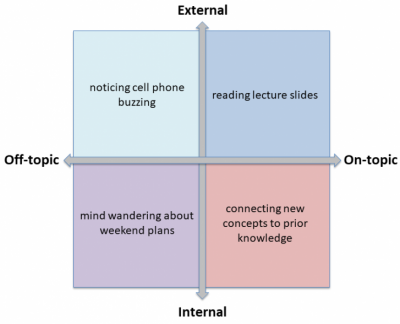
The project will focus on the role of internal attention as it applies to learning science. Davidesco says that it is currently unknown whether internal attention (e.g., pausing a lecture to allow students to quietly think about a problem) is beneficial or detrimental to learning.
“The hypothesis here is that internal attention can actually be beneficial to learning,” Davidesco says. “But it depends on how ‘thinking periods’ are used. For that reason, we plan to experimentally manipulate the frequency and duration of these ‘thinking periods’ as well as the guidance given to students.”
Davidesco’s team will use electroencephalography (EEG) to identify neural correlates of attention fluctuations that occur during lectures. They will also develop course-based undergraduate research experiences allowing undergraduate students to investigate their own attention states and associated brain activity.
“Undergraduate students will not only participate in our studies but also be involved in developing new research questions and conducting EEG experiments in their classroom,” Davidesco says.
“There is a need to understand better how undergraduate students pay attention in virtual and face-to-face classrooms, where most instruction still heavily relies on lectures,” Davidesco says. “I hope that this research will help instructors teach science more effectively.”
More Than Masks and Critical Race Theory – 3 Tasks You Should be Prepared to do Before You Run for School Board
The Conversation (Casey Cobb pens essay on what potential school board candidates to consider before running)
Academically Talented Students With Autism Can Prepare for Success in College

Editor’s Note: A following piece on research by the Neag School’s Sally Reis, Joseph Madaus, and Nicholas Gelbar originally appeared in UConn Today.
Students who are both academically talented and also on the autism spectrum can enjoy greater success in college based on their correct high school experience.
Students who are both academically talented and also on the autism spectrum can enjoy greater success in college based on the correct high school experience. That’s the finding of research performed by a UConn team in the Neag School of Education and published in a recent issue of the Journal of Autism and Developmental Disorders.
“High school should not be just about deficit reduction, but should be about talent development,” says Sally Reis, the Letitia Neag Morgan Chair in Educational Psychology. “We would love to see more teachers and parents using the interests and strengths of these student to be able to address their deficits. You can do that in a remedial class, but that is completely inappropriate for this group. What we want people to do is find something these kids love to do, based on their interests.”
The study used the largest sample of academically advanced students, who also have autism, in any research study ever conducted. The authors were interested in researching a group where the focus is typically on disabilities, not talent and abilities.
“High school should not be just about deficit reduction, but should be about talent development.”
— Sally Reis, Letitia Neag Morgan Chair in Educational Psychology
“We wanted to do a study that, in a certain sense, used reverse engineering,” says Reis. “So many students with autism who are intelligent don’t make it through college.”
As a result, the team narrowed their sample to students who had already completed a few years at various highly competitive universities and some who had recently graduated.
“One of the issues that these students face is that their autism may mask their talents, or their talents may mask their autism,” says Joseph Madaus, the director of the Collaborative on Postsecondary Education and Disability and a professor in the Department of Educational Psychology. “Another challenge is that because of their performance in high school, they might not receive some of the special education services they might need.
“We do want to challenge these students and put them in the most rigorous academic curriculum possible for them in high school, not only to tap into their strengths and passions, but to also prepare them for higher education.”
Extracurricular activities in high school also play an important role in academic success on the next level for these students.
“One of the issues that these students face is that their autism may mask their talents, or their talents may mask their autism.”
— Professor Joseph Madaus
“When they participate in work that they are interested in and passionate about, these students put themselves in situations when they can develop better social skills and strategies,” says Nicholas Gelbar, an associate research professor at UConn. “Many of the students that were in our sample were also involved in these types of activities in college and that connected them better to their campus community, so they were able to do better academically. These passions can help make up for some of the challenges they are going to face socially both in college and the work environment.”
The researchers hope their work will serve as a positive beacon for parents and students.
“Many of these students are lonely and have social challenges,” says Reis. “Meaningful work can provide an outlet and we have to consider how much wasted talent that occurs when these young people go to college and drop out because of isolating events.”
Reis offered specific advice for parents of talented students with autism for their high school years to help them prepare for college.
“They need to make sure that their student is in at least one or two extremely challenging classes in their area of interest and achievement,” says Reis. “Then, try to find an extracurricular activity that connects with their interests and gives them a chance to make friends and excel in something out of the academic realm. It can be something connected to their school or something they do on the weekend, like a class at a science center, for example.
“We also learned that many of these young people are successful in college because their parents were able to send them to a week-long or two week-long summer residential program. This overnight experience really helps them when they get to college. We understand that takes money and not everyone can do that, but there are scholarships available and lots of organizations that support young people with autism.”
Reis said it was also important that these student have some adult at their high school that can serve as a support system and understands them.
“Many of these young people have a limited social battery and they just need time to be able to recharge,” says Reis. “So, each of our students that were successful in college had a guidance counselor, teacher or someone from whom they received help and support.”
How to Use Homework to Support Student Success

Editor’s Note: Board of Trustees Distinguished Professor Sandra Chafouleas shares insights on supporting students’ homework during the pandemic in the following piece, which originally appeared in Psychology Today, where she publishes a blog.
COVID has brought many changes in education. What does it mean for homework?
School assignments that a student is expected to do outside of the regular school day—that’s homework. The general guideline is 10 minutes of nightly homework per grade level beginning after kindergarten. This amounts to just a few minutes for younger elementary students to up to 2 hours for high school students.
The guidance seems straightforward enough, so why is homework such a controversial topic? School disruptions, including extended periods of remote learning during the COVID-19 pandemic, have magnified the controversies yet also have provided an opportunity to rethink the purpose and value of homework.
Debates about the value of homework center around two primary issues: amount and inequity.
First, the amount of assigned homework may be much more than the recommended guidelines. Families report their children are stressed out over the time spent doing homework. Too much homework can challenge well-being given the restricted time available for sleep, exercise, and social connection. In a 2015 study, for example, parents reported their early elementary children received almost three times the recommended guidelines. In high school, researchers found an average of three hours of homework per night for students living in economically privileged communities.
“Debates about the value of homework center around two primary issues: amount and inequity.”
Second, homework can perpetuate inequities. Students attending school in less economically privileged communities may receive little to no homework, or have difficulty completing it due to limited access to needed technology. This can translate into fewer opportunities to learn and may contribute to gaps in achievement.
There isn’t a ton of research on the effects of homework, and available studies certainly do not provide a simple answer. For example, a 2006 synthesis of studies suggested a positive influence between homework completion and academic achievement for middle and high school students. Supporters also point out that homework offers additional opportunities to engage in learning and that it can foster independent learning habits such as planning and a sense of responsibility. A more recent study involving 13-year-old students in Spain found higher test scores for those who were regularly assigned homework in math and science, with an optimal time around one hour—which is roughly aligned with recommendations. However, the researchers noted that ability to independently do the work, student effort, and prior achievement were more important contributors than time spent.
Opponents of homework maintain that the academic benefit does not outweigh the toll on well-being. Researchers have observed student stress, physical health problems, and lack of life balance, especially when the time spent goes over the recommended guidelines. In a survey of adolescents, over half reported the amount and type of homework they received to be a primary source of stress in their lives. In addition, vast differences exist in access and availability of supports, such as internet connection, adult assistance, or even a place to call home, as 1.5 million children experience homelessness in the United States
The COVID-19 pandemic has re-energized discussion about homework practices, with the goal to advance recommendations about how, when, and with whom it can be best used. Here’s a summary of key strategies:
Strategies for Educators
Make sure the tasks are meaningful and matched.
First, the motto “quality over quantity” can guide decisions about homework. Homework is not busy-work, and instead should get students excited about learning. Emphasize activities that facilitate choice and interest to extend learning, like choose your own reading adventure or math games. Second, each student should be able to complete homework independently with success. Think about Goldilocks: To be effective, assignments should be just right for each learner. One example of how do this efficiently is through online learning platforms that can efficiently adjust to skill level and can be completed in a reasonable amount of time.
Ensure access to resources for task completion.
One step toward equity is to ensure access to necessary resources such as time, space, and materials. Teach students about preparing for homework success, allocating classroom time to model and practice good study habits such as setting up their physical environment, time management, and chunking tasks. Engage in conversations with students and families to problem-solve challenges When needed, connect students with homework supports available through after-school clubs, other community supports, or even within a dedicated block during the school day.
Be open to revisiting homework policies and practices.
The days of penalizing students for not completing homework should be long gone. Homework is a tool for practicing content and learning self-management. With that in mind, provide opportunities for students to communicate needs, and respond by revising assignments or allowing them to turn in on alternative dates. Engage in adult professional learning about high-quality homework, from value (Should I assign this task?) to evaluation (How should this be graded? Did that homework assignment result in expected outcomes?). Monitor how things are going by looking at completion rates and by asking students for their feedback. Be willing to adapt the homework schedule or expectations based on what is learned.
Strategies for Families
Understand how to be a good helper.
When designed appropriately, students should be able to complete homework with independence. Limit homework wars by working to be a good helper. Hovering, micromanaging, or doing homework for them may be easiest in the moment but does not help build their independence. Be a good helper by asking guiding questions, providing hints, or checking for understanding. Focus your assistance on setting up structures for homework success, like space and time.
Use homework as a tool for communication.
Use homework as a vehicle to foster family-school communication. Families can use homework as an opportunity to open conversations about specific assignments or classes, peer relationships, or even sleep quality that may be impacting student success. For younger students, using a daily or weekly home-school notebook or planner can be one way to share information. For older students, help them practice communicating their needs and provide support as needed.
Make sure to balance wellness.
Like adults, children need a healthy work-life balance. Positive social connection and engagement in pleasurable activities are important core principles to foster well-being. Monitor the load of homework and other structured activities to make sure there is time in the daily routine for play. Play can mean different things to different children: getting outside, reading for pleasure, and yes, even gaming. Just try to ensure that activities include a mix of health-focused activities such as physical movement or mindfulness downtime.
